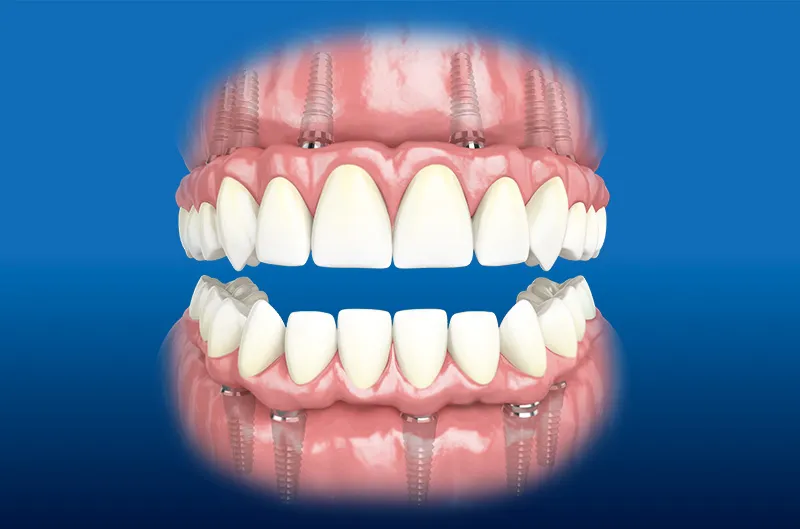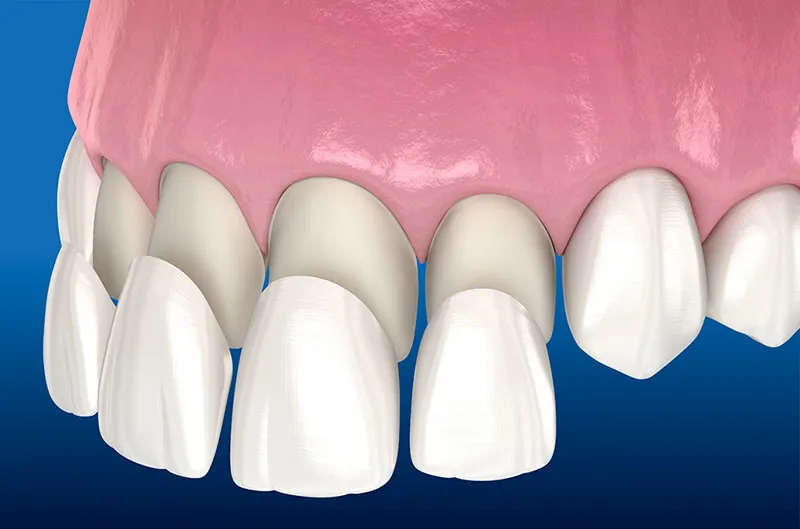
When it comes to restoring or enhancing your smile, two popular options often come to mind: dental implants and veneers. Understanding the key differences between dental implants vs veneers is essential for making an informed decision that suits your dental health needs and aesthetic goals. While both treatments can transform your smile, they serve very different purposes and involve distinct dental procedures.
Dental implants are a permanent solution designed specifically to replace missing teeth. Unlike dentures or bridges that rest on the gums, dental implants involve surgically placing titanium or ceramic posts into the jawbone. These artificial tooth roots fuse with the bone through a process called osseointegration, providing a stable foundation for a custom-made replacement tooth or crown. This integration helps preserve the jawbone and prevents bone loss, which is a common consequence of tooth loss.
The dental implant procedure typically occurs in two stages. First, the implant post is surgically inserted into the jawbone. After a healing period that allows the implant to bond securely with the bone, a permanent crown is attached. This final crown is designed to match the natural appearance of your existing teeth, restoring both function and aesthetics. With proper care, dental implants can last a lifetime, functioning just like natural teeth and supporting healthy gums and overall oral health.

Dental Veneers are a cosmetic solution designed to enhance the appearance of existing teeth. These thin, custom-made shells are bonded to the front of teeth to address issues such as discoloration, minor chips, gaps, and uneven shapes. Veneers do not replace missing teeth but rather improve the look of those that are still intact.

Both options offer transformative results, but the right choice depends on your specific dental needs and goals.
Dental implants are titanium or ceramic posts that are surgically implanted into the jawbone, unlike dentures or bridges, which rest on top of the gums. The posts are then used to anchor custom-made crowns, replacing the missing teeth. They can replace just one tooth, several teeth, or an entire arch, and are designed to last a lifetime with proper care. Not only do dental implants look and feel like natural teeth, but they can also help prevent bone loss related to missing teeth.
Depending on the type of dental implant procedure is done in two stages. First, the post is surgically implanted. The recipient will have to wait several weeks for the implant to fuse to the jawbone, and then the second part of the procedure can be completed, attaching the crown. After osseointegration is complete, an abutment is placed on top of the titanium post to support the crown.
Restored Aesthetics & Confidence: Dental implants not only replace teeth, but also restore your ability to smile and eat confidently. With a brand-new smile, you can enjoy the freedom to laugh, eat, and connect with renewed self-assurance.
Better oral health: Dental Implants help prevent bone loss and are easier to clean than conventional dentures or bridges. Dental implants function, feel and look like natural teeth. They help stimulate your jawbone, preventing bone loss and maintaining your facial contours. Plus, they help reduce the risk of gum infections.
Improved well-being: Dental implants offer more than just a beautiful smile, they are an emotional investment. They enhance your quality of life by improving chewing function and supporting overall health. Enjoy the freedom to savor your favorite foods while boosting your mental well-being.
Health eligibility: You have to meet several requirements to qualify for dental implants, such as being in good general health, not having extensive bone loss in the jaws.
Implant Failure Risk: Though rare, implants can fail due to bone quality, infection, or excessive force, requiring potential removal and replacement; regular check-ups are crucial.
Dental veneers are thin, custom-made shells that are bonded to the front surfaces of teeth to improve their appearance. They are used to correct a variety of cosmetic issues, including:
Cosmetic Transformation: Veneers provide a quick, customized solution for achieving a uniform, bright, and natural-looking smile and polished appearance.
Stain Resistance and Durability: Porcelain veneers are durable and stain-resistant, unlike natural teeth. They can resist discoloration from beverages like coffee, tea, and red wine, remaining visually appealing with proper care.
Irreversible Preparation and Sensitivity: A drawback of dental veneers is the need for tooth preparation, which involves removing some enamel for a proper fit. This process is irreversible and may increase sensitivity to hot and cold. Since enamel doesn’t regenerate, the teeth will always require some form of restoration after this step.
Financial Investment: Veneers can be a significant investment due to their custom design and skilled craftsmanship, often resulting in higher costs compared to other cosmetic dental treatments. Furthermore, they are typically not covered by dental insurance, which may limit accessibility for those wanting to enhance their smile.
The optimal choice between dental implants and veneers hinges on a patient's dental health, aesthetic goals, and long-term needs; a consultation with a Hybridge doctor is recommended to explore personalized options
Dental implants are often preferred for individuals with significant dental issues, as they provide a permanent solution that restores both function and appearance. Implants also help prevent bone loss by stimulating the jaw, making them ideal for patients needing a complete tooth replacement that mimics the strength and stability of natural teeth.
On the other hand, veneers are a great option for those with healthy teeth who wish to enhance their smile by correcting cosmetic issues such as discoloration, minor chips, gaps, or slight misalignment. Veneers require minimal alteration to the natural teeth and offer an instant transformation, making them a popular choice for individuals seeking purely aesthetic improvements.
Ultimately, patients should consult a Hybridge provider to determine the best solution based on their oral health, lifestyle, and long-term expectations.